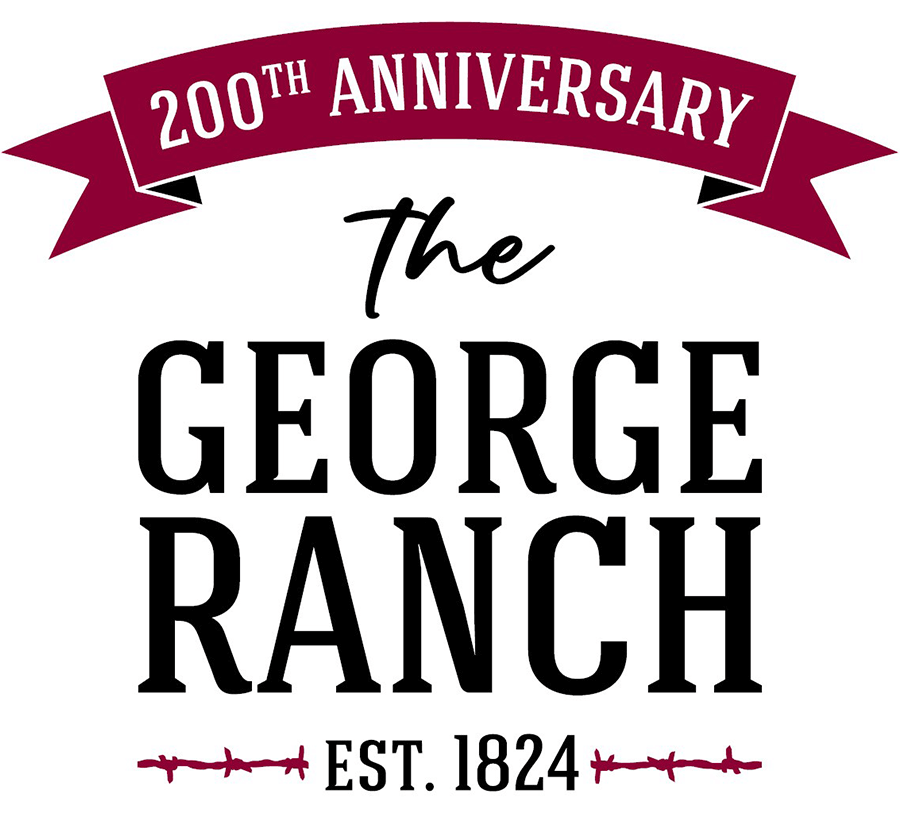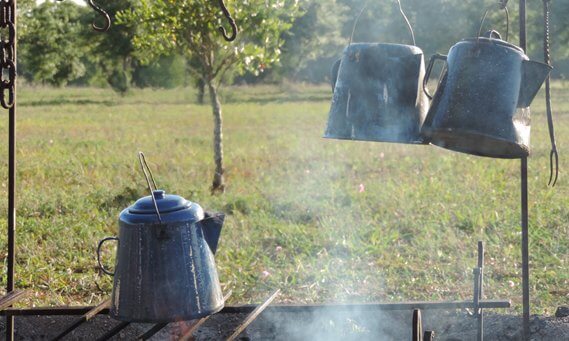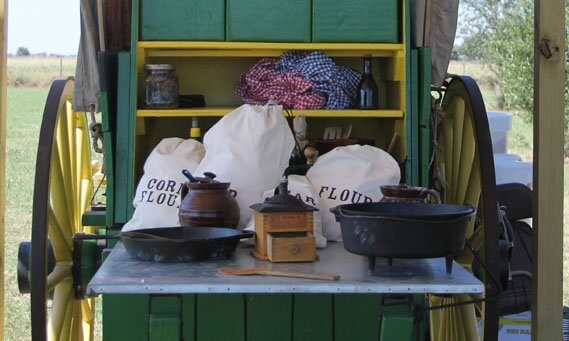The Many Faces of Coffee
By Daniel Kellogg
Chuckwagon Interpreter
Tomorrow: come out to the 1860s Chuckwagon camp to explore the roots of coffee and its variations by delving into the history of one of America’s favorite drinks! You can learn about coffee production of old as well as the many substitutes used when coffee beans were unavailable.
Brief History of Coffee
Though there are many stories about the discovery of coffee, one of the most popular legends tells the story of Kaldi, a young 6th-century Ethiopian goat herder. Legend has it that Kaldi noticed unusual restless behavior in his flocks after they had eaten the berries and leaves of a particular unknown plant. Monks in a nearby monastery heard the story and, after much trial and error, succeeded in using the plant to create a unique beverage that helped keep them awake during long nights of prayer. Coffee propagation was in full-swing by the 15th century; by the 1600s, it had spread to India and Europe.
This culture of coffeehouses moved to early North America and became popular in the New England region where it then spread across the United States. One of the main reasons coffee became so popular in the American Colonies was the American Revolution and the “Boston Tea Party,” where colonial patriots dumped imported British tea into the Boston Harbor to protest taxes without representation. By this time, coffeehouses had become social centers — including one Green Dragon coffeehouse and tavern that was a meeting place for many of the Founding Fathers. Drinking coffee became a patriotic way of showing support for the American Revolution. British tea never recovered its place as the most popular morning beverage after the war.
The rise of coffee in the United States led to all types of coffee roasters, grinders and factories being built. Perhaps another reason for its increasing popularity was the fact it was not taxed after 1832. But then coffee production and trade changed radically with the start of the Civil War in 1861.
Civil War: Coffee and Substitutes
During the Civil War, the Confederate States’ ports were blockaded by the United States Navy. These blockades prevented many imported goods and supplies from reaching people across the South. One of these imported goods was coffee beans. As the war raged from 1861 to 1865, the supply of coffee ran short and the small supply brought in by fast-sailing blockade runner ships could not meet the demand. The desire of people to have a hot coffee-like beverage led them to create substitutes for coffee. Some of these substitutes were quite unique! We have newspaper records of letters-to-the-editor publishing different experiments. Some of the substitutes we will have at the Chuckwagon tomorrow are made from these recipes:
ALBANY [GA.] PATRIOT, December 12, 1861, p. 2, c. 3
“Sweet Potato coffee
Preparation–Peel your potatoes and slice them rather thin; dry them in the air or on a
stove; then cut into pieces small enough to go into the coffee mill, then grind it. Two tablespoons
full of ground coffee and three or four of ground potatoes will make eight or nine cups of coffee,
clear, pure and well tasted.
“The above is worthy of a trial. We have thoroughly tested its qualities, and can perceive
no difference in taste from the genuine coffee. One table spoonful of ground coffee to two of the
ground potatoe [sic] makes five cups full of a cheap, pleasant and healthy beverage. It is
preferable to parch the potatoe [sic] in thin slices by the sun, as the parching or drying will be
more regular, and not so apt to burn as when parched on a stove. We regard it as every way
equal to Rio, Java, or the Mocha coffee.”
THE SOUTHERN BANNER [ATHENS, GA], February 11, 1863, p. 3, c. 4
“Okra–A Substitute for Coffee.
Parch over a good fire and stir well until it is dark brown; then take off the fire and before
the seed get cool put the white of one egg to two tea-cups full of okra, and mix well. Put the
same quantity of seed in the coffee pot as you would coffee, boil well and settle as coffee.”
(Do you think sweet potatoes and okra will taste like coffee? Come out on tomorrow and find out!)
After the Civil War, coffee, which had so long been in short supply, came streaming in through trade ports bringing in hundreds of thousands of bags of coffee, each weighing about 132 pounds! Advancements in packing and pre-roasting coffee beans by the ArBuckle Brothers in 1865 meant that cowboys no longer had to roast their coffee beans before grinding them, a welcome and time-saving invention for the chuckwagon cook!
Cowboy Coffee
Out on the cattle drives of the late 1800s, coffee was a mainstay in a Cookie’s (nickname for a chuckwagon cook) supplies for the trail. When cowboys woke up around 4 a.m. to start the day’s work, nothing made them happier than sipping on some strong and hot coffee to rid themselves of the morning slump. Cookie made sure there was always a pot of coffee over the fire for the cowboys to drink.
It is important to note that cowboys did not use coffee filters. Instead, the coarse-ground coffee sits in the water until it simmers, not boils (boiling releases tannic acid from the beans and makes the coffee bitter), and then cold or lukewarm water is poured in causing the grounds to sink to the bottom. Too much disturbance of the pot causes the grounds to rise to the top and pour out the spout into your cup. This is why the camp rule is to always call out “Man at the pot!” that way everybody who wants coffee better get in line so one steady pour happens – keeping the grounds at the bottom.
Coffee today is still quite popular among cowboys and – well, just about everybody. Here at the George Ranch Historical Park, we want you to fully experience history. That includes smelling and tasting it, too! So bring your friends and family tomorrow and come out and enjoy learning about coffee, including how it’s made over an open fire. And don’t forget to sample some of the unique coffee-like beverages!





